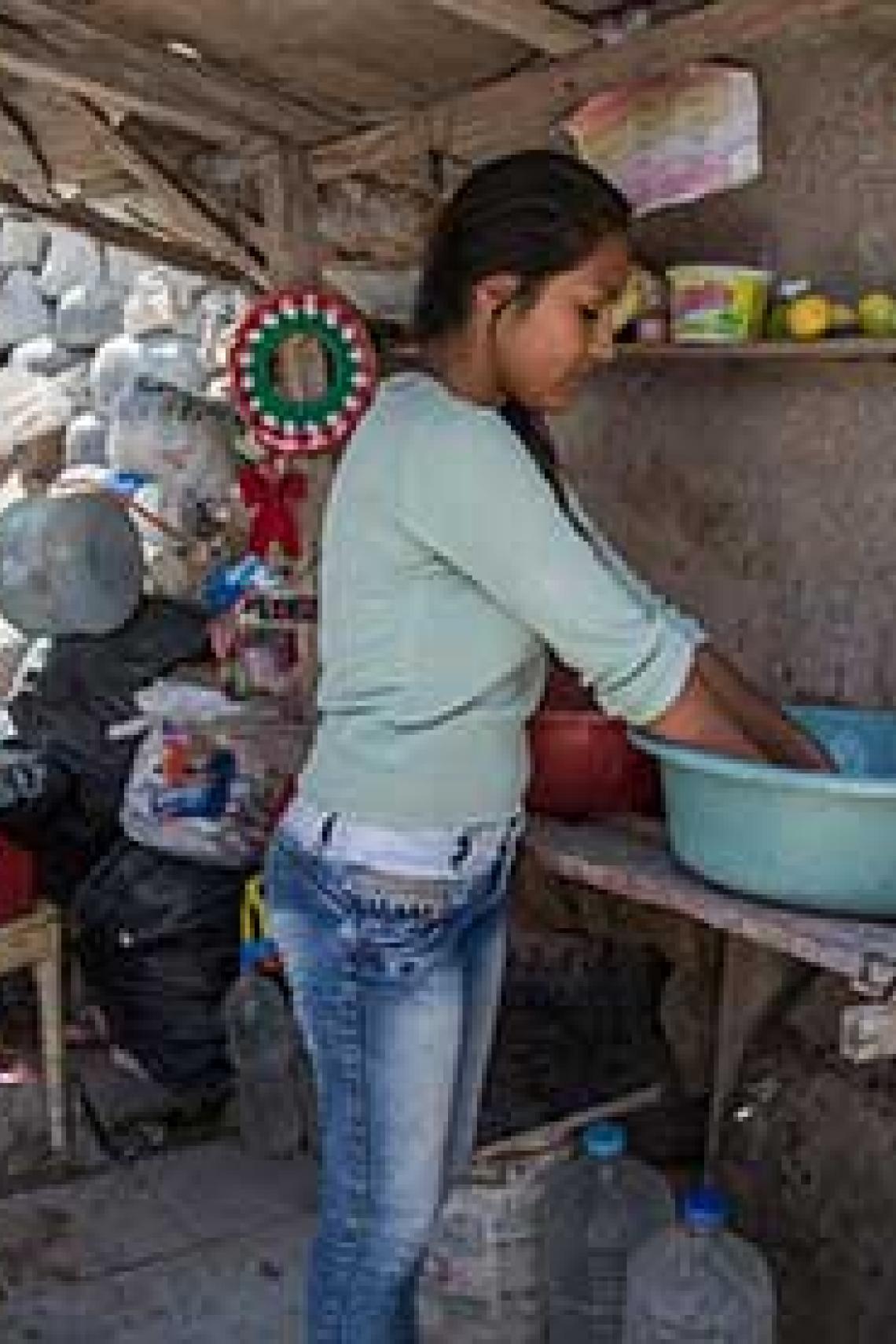Latest Young Lives research finds COVID widening inequalities for poorest young people in developing countries
COVID-19 could reverse important gains in education attainment and future life chances for young people in developing countries – particularly the poorest and most vulnerable, according to the latest findings from Young Lives at Work.
The findings from the third call in the Young Lives telephone survey show a complex and uneven picture. While many are returning to employment or education, interrupted learning, less reliable work, food shortages and significant mental health issues are all widening inequalities.
“On the surface, things are improving for many, following the initial shock of the pandemic, but beneath that, inequalities are clearly widening. COVID-19 could not only halt progress but could reverse important gains in educational attainment and future life changes,” said Dr Marta Favara, Deputy Director, Young Lives at Work.The Prime Minister’s Special Envoy on Girls’ Education, Helen Grant said:it in July to urge world leaders to invest in getting children into school and learning - to help economies grow, tackle poverty and empower women everywhere.”
The Prime Minister’s Special Envoy on Girls’ Education, Helen Grant said:
“Coronavirus has made girls’ education an even more urgent priority, with 1.6 billion children around the world out of education at the peak of school closures. For the world’s poorest girls, being out of school puts them at even greater risk of early marriage, forced labour and violence.
“The UK is backing research by Young Lives to better understand how to overcome the barriers stopping girls from realising their full potential. We are determined to get 40 million more girls in school in low and middle income countries by 2025 and a third more girls reading by the age of 10.
“That is why UK and Kenya are co-hosting a Global Education Summit in July to urge world leaders to invest in getting children into school and learning - to help economies grow, tackle poverty and empower women everywhere.”
Young Lives’ researchers asked over 9,000 young people in two cohorts aged 19 and 26 years old in, India (Andhra Pradesh and Telangana), Peru and Vietnam about their education, employment, access to food, mental health and well-being. They found:
EDUCATION: Encouraging signs of return to education, but very uneven and interrupted learning persists
A majority of students are now returning to their studies, but many classes remain on-line and quality is uneven. A persistent digital divide has made learning almost impossible for young people without internet access and a device to learn, resulting in a lost year of learning. There is a worrying risk that many poorer students will be left behind and may never return to education.
A significant proportion of participants are still waiting for schools to reopen or are not engaged in education, with girls in the poorest families more likely to have stopped attending classes.
The poorest girls and young women may find it particularly hard to return to education
Many of the poorest girls may find it particularly hard to restart their education, especially those studying at a relatively low level.
Several countries have seen girls from vulnerable groups hit hardest by education disruptions, while across all four study countries, girls and young women are bearing the greatest burden of increased household duties and childcare during the pandemic.
EMPLOYMENT: Returning to work, but employment crisis continues in Peru and clear gender gap emerging
Whilst the majority of young people have been able to return to work, job recovery has been significantly slower for 26-year-old women. Meanwhile, a continued shift to agriculture and self-employment in India, Peru and Ethiopia may indicate more informal, poorer quality jobs.
FOOD SECURITY: The poorest households are most likely to go hungry – newly poor in urban areas also affected
Many young people reported that they had run out of food at least once over the last year, with the poorest households hardest hit. In Ethiopia, the proportion of 19-year-olds whose households ran out of food in the last 12 months increased threefold since 2016. In Peru, 12% of the poorest households reported running out of food in the past 12 months (9% in 2016).
MENTAL HEALTH: The pandemic is taking a heavy toll on mental health.
Whilst there have been improvements in young peoples’ reported mental health issues as countries have lifted lockdowns and restrictions, most notably in Vietnam, the pandemic continues to take a heavy toll, at a time when access to mental health services is likely to have been significantly disrupted.
The mental health of young women was worse than that of young men across all four study countries, with the exception of Ethiopia where young men reported marginally higher anxiety.
‘‘Our findings show that the poorest, most vulnerable young people are struggling to recover from the pandemic. Additional stress caused by interruptions in their education, increased food insecurity and increased household duties may be directly contributing to worsening mental health amongst the poorest young women,’’ added Dr Favara.
All four headline reports from Call 3 are available on the Young Lives at Work page.
Young Lives at Work Phone Survey
- Call 1 was conducted between June and July 2020
- Call 2 was conducted between August and October 2020; findings available on www.younglives.org.uk
- Call 3 was conducted between November and December 2020.

